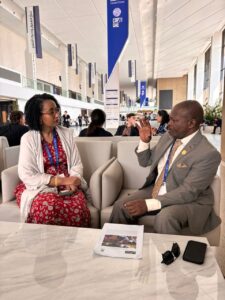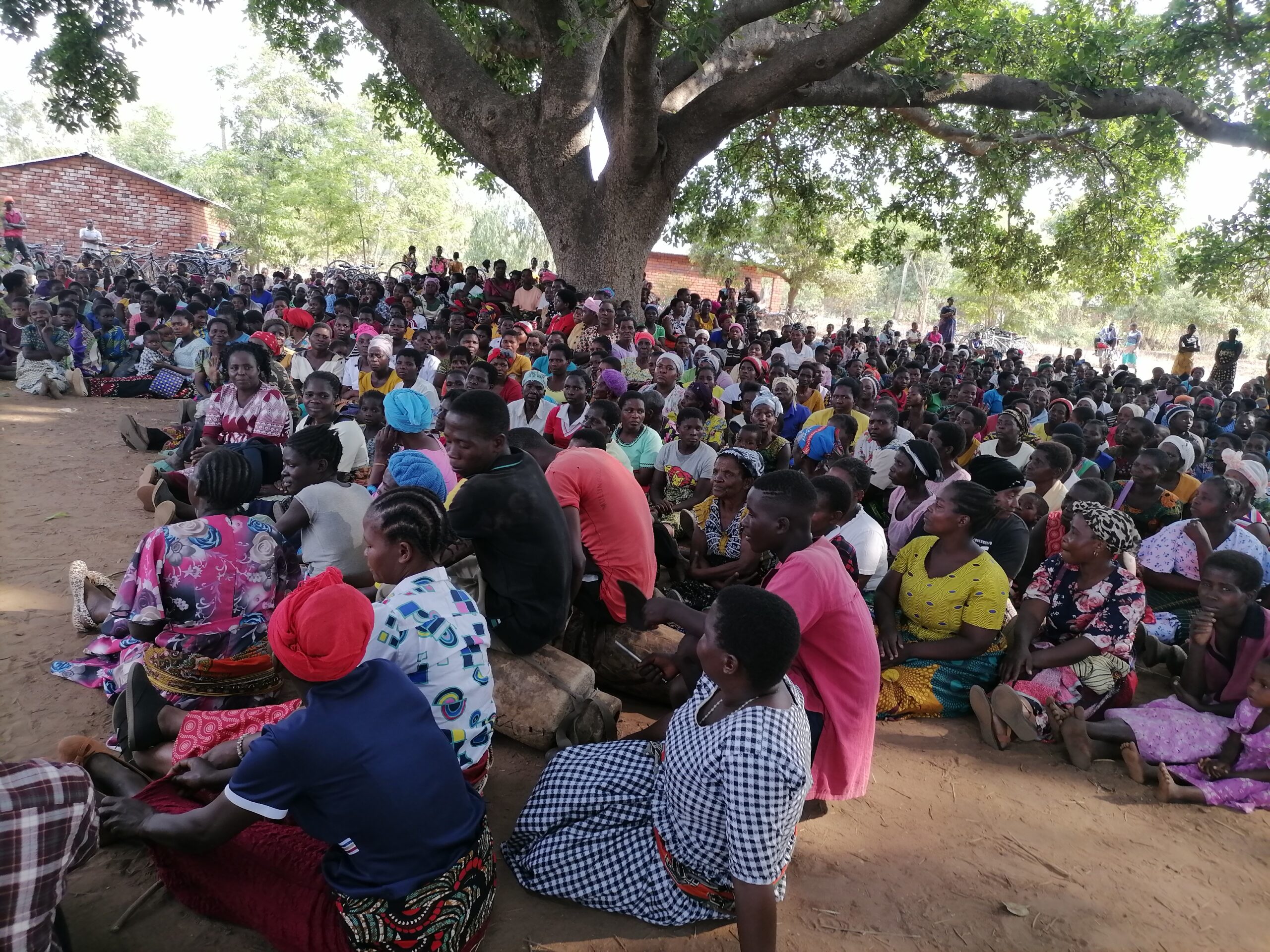Alice Kachere lives nearly 9,000 kilometres away from the media spotlight focused on the negotiations happening at the UN’s annual climate change summit, COP 28.
Alice is a farmer, from Lilongwe, in Malawi. Like many women – who are disproportionately affected by the climate crisis – Alice doesn’t need 28 climate summits to know what support rural farmers need.
“Climate change demands more than blankets and buckets when we are hit by floods”, says Alice. “We need support that would enable us grow food again without depending on chemicals that are damaging our environment and bodies.”
In Malawi, Oxfam through the Gender Transformative Climate Resilience Project funded by the African Development Bank, is working with women’s local movements like the Rural Women Assemblies to support women and amplify their voices.
Developed by farming communities, these Assemblies are powerful platforms for farmers where voices directly affected by climate change are heard.
As chairperson of the Rural Women’s Assembly (RWA) Malawi Chapter, Alice is exasperated by the slow, insensitive, and inadequate gender-blind support rural farmers like her receive from global leaders.
“Climate financing must go beyond responding to climate related disasters,” says Alice, “they must also support rural women to embrace agroecology.”
Ahead of COP28, Oxfam Scotland offered financial support for a series of Assemblies, supporting rural women and communities affected by climate change to amplify their concerns. The meetings were held in Malemia and Mwambo in Zomba district.
Key focus areas included climate financing, loss and damage, adaptation support, and advocating for a bottom-up approach to climate negotiations.
Read a full list of the Rural Women Assemblies’ asks here.
 Too often, the needs of women are over-looked in global climate action, as well as at negotiations like COP28, with only 15 out of the 133 world leaders attending female.
Too often, the needs of women are over-looked in global climate action, as well as at negotiations like COP28, with only 15 out of the 133 world leaders attending female.
The demands developed through the Rural Women Assemblies were therefore taken to COP 28 and presented to Dr. Michael Usi, Malawi Minister of Natural Resources and Climate Change, by Fati N’Zi-Hassane, the One Africa Director for Oxfam International.
The decisions taken at COP 28 will reverberate for thousands of miles, for years to come. All Alice, and countless people like her, can do is wait and hope that their voices have been heard.
